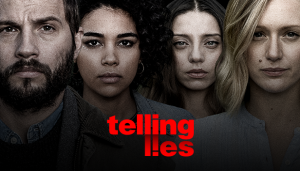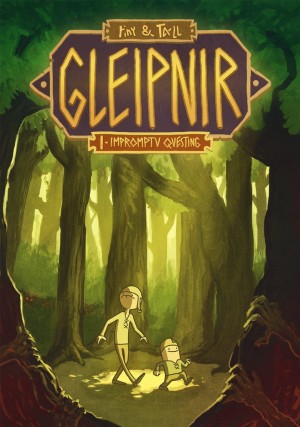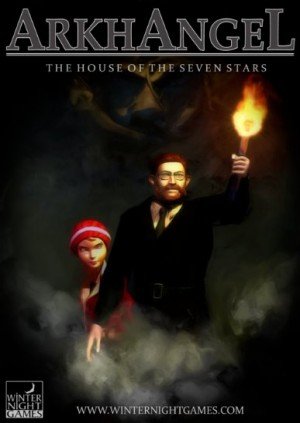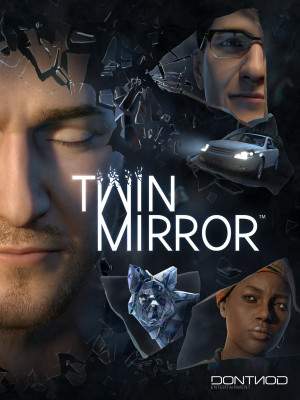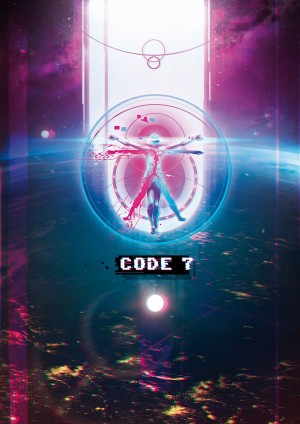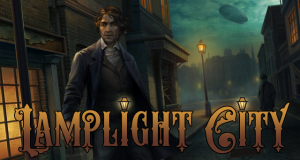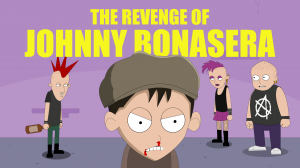Sam Barlow (Her Story, Telling Lies) – Part 1 interview
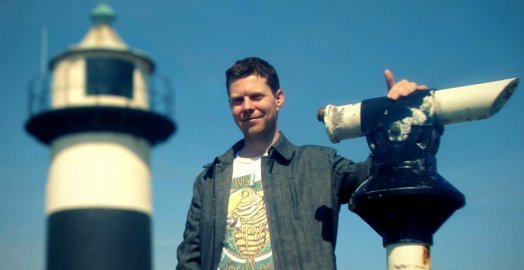
In 2014, former AAA writer and designer Sam Barlow set himself up as an independent "in order to tell the types of stories that are neglected in the mainstream games industry." In 2015, the UK-based developer released his interactive murder mystery Her Story, which quickly became a flagship of the indie scene, garnering critical acclaim around the globe. For his soon-to-be-released surveillance thriller Telling Lies, Sam has teamed up with publisher Annapurna Interactive but continues to explore the concept of a fragmented plot that is unravelled via a database of video clips. Eager to learn more, I got hold of Sam on Skype recently and we thoroughly discussed Her Story, Telling Lies and other topics related to interactive storytelling. In fact, our conversation got so extensive that we have decided to split the article in two halves. Enjoy hearing his story as each part contains loads of meaty insights from the mind of Sam Barlow.
Ingmar: Hi Sam, it's a pleasure speaking to you! Please talk about the concept and story premise of Telling Lies.
Sam Barlow: Hi! This is a less simple pitch than Her Story. It's a much bigger, messier, more colourful game. Essentially, we've gone from Her Story's kind of gothic murder mystery to something which is...umm, I was calling it a political thriller, but the more I've said that, the less interesting it sounded, so I need to come up with a better word. (laughs)
When the game opens, we see this woman run out of a car at night in Brooklyn. She runs into an apartment, pulls open a laptop and retrieves from her bag an external hard drive which she plugs in and boots up her laptop. On this hard drive is a stolen portion of an NSA database, which contains all sorts of captured footage particularly concerning this core group of four characters. We kind of understand from the get-go that there is this larger picture of what's going on, and then we're thrown into what initially appears to be lots of intimate conversations, thrown into the domestic minutiae of the characters' lives. All of these clips we're watching – that are stored in this database – are people speaking on the internet: Face Time conversations between a husband and his wife, people webcamming in the early days of their relationship, a father reading bedtime stories to his daughter.
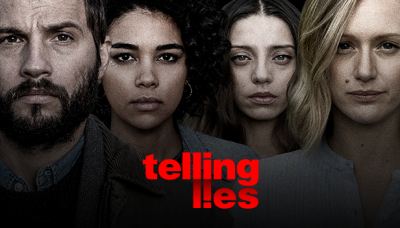 I‘ve started calling Telling Lies "anti-cinematic", mainly as a response to Her Story generally getting called an interactive movie. With Telling Lies, I was thinking more consciously about the structure and what does it mean to use video this way. I was aware that the texture of this, in a way, is the opposite of cinema, which boils everything down, uses montages, and the dialogue and the plot structure in a movie are very concentrated. Here the effect is much more novelistic, somewhat more theatrical. There are scenes that unfold at a more organic pace. You're listening to people talk to people they have personal relationships with, and these are not movie scenes where a scene opens, characters talk back and forth for thirty seconds, and then there's a cut, and we're out of the scene. This is a much more interesting pace.
I‘ve started calling Telling Lies "anti-cinematic", mainly as a response to Her Story generally getting called an interactive movie. With Telling Lies, I was thinking more consciously about the structure and what does it mean to use video this way. I was aware that the texture of this, in a way, is the opposite of cinema, which boils everything down, uses montages, and the dialogue and the plot structure in a movie are very concentrated. Here the effect is much more novelistic, somewhat more theatrical. There are scenes that unfold at a more organic pace. You're listening to people talk to people they have personal relationships with, and these are not movie scenes where a scene opens, characters talk back and forth for thirty seconds, and then there's a cut, and we're out of the scene. This is a much more interesting pace.
For me the thing that was interesting with Her Story was that the initial hook was: "solve a murder", so that was most people's initial cognition, but reasonably quickly you'd have a pretty solid idea of that, and then you'd have more interesting questions along the lines of: "why did this murder happen?", "why did this person do this thing?", "what is the story of this character?", "what's all of the stuff in the backstory?", and you might have questions which you want to resolve. I think with Telling Lies, to some extent, I jumped straight to the character bit because ultimately this way of deeply exploring characters' lives was the thing that was interesting in Her Story.
Like Her Story, Telling Lies is going to make you ask initial questions like: "what is going on here?" There is a series of events which have caused this whole thing to happen, there's a reason this woman is crawling through the database, and there's a reason she's stolen this hard drive, so your first instinct might be to answer these questions, and once you have that understanding, once you have the spines of the story, then the more interesting questions are: "why did these people do these things?" and "what did they really believe?" Obviously the title is very direct; a lot of your questions about the characters are gonna be understanding these relationships, understanding why people do what they do, and having opinions.
Ingmar: There was a certain point in Her Story where the game allowed you to pretty much leave if you wanted to. It was possible to say “ok, I’ve seen enough, the game is over for me.” But once I got there, I started digging deeper, deeper, and deeper, because I wanted to find out more about the things that were going on in the background. Is there going to be something similar in Telling Lies?
Sam: Yeah, in fact one of the things I was surprised by with Her Story was the number of people who found 100% of the clips or felt compelled to. I was never sure if that was because there was a Steam achievement attached to it, or if it’s just the nature of when people are given a video game. Or whether it’s because people really did just want to feel like they’d found everything. And I think initially with the new game I wanted to free people a little bit from that sense that they had to see and find everything. And part of that was just making a lot more content. Like I said, this is a bigger, messier canvas that you’re exploring, so it feels less like you can see everything. I think it was the guys at inkle when they were talking about 80 Days…their approach on that game to avoid people digging too much into the mechanics, or worrying about branches and trees, was just to give you so much content that you just kinda stopped trying to keep hold onto it and enjoy yourself.
And so I had this initial idea – half of which survived in the game – that on the one hand the carrot for making people worry less about finding everything was just to make this thing feel so big and rich and have so much content that it was easy to skip around it. And there’s some changes to the way you actually navigate between things, which encourages you to jump around and be less disciplined. But then I also had in mind the stick, which was that the game takes place across a fixed time period. So it starts at midnight and takes place over five or six hours as this woman is trawling through this database through the night. And time progression is somewhat linked to your actions as a player, what you’re looking at, what you’re doing.
One of my original plans was that being aware that time was passing, you would understand that things were rushing to a head and that there was a limit and that you would run out of time. Once you reached a certain point, the game would essentially finish itself and wrap things up as a way of saying “you can’t find 100%, so don’t worry about it.” But then when we were testing, and I was playing it, I found it so obscenely awful because even though I knew what the story was, I would be getting towards the end and I would be digging around and following down some thread and then the game would kick me out and I was just furious with myself. I was like, “this is the worst idea ever.” It does still have a similar thing but it’s slightly different.
Continued on the next page...




